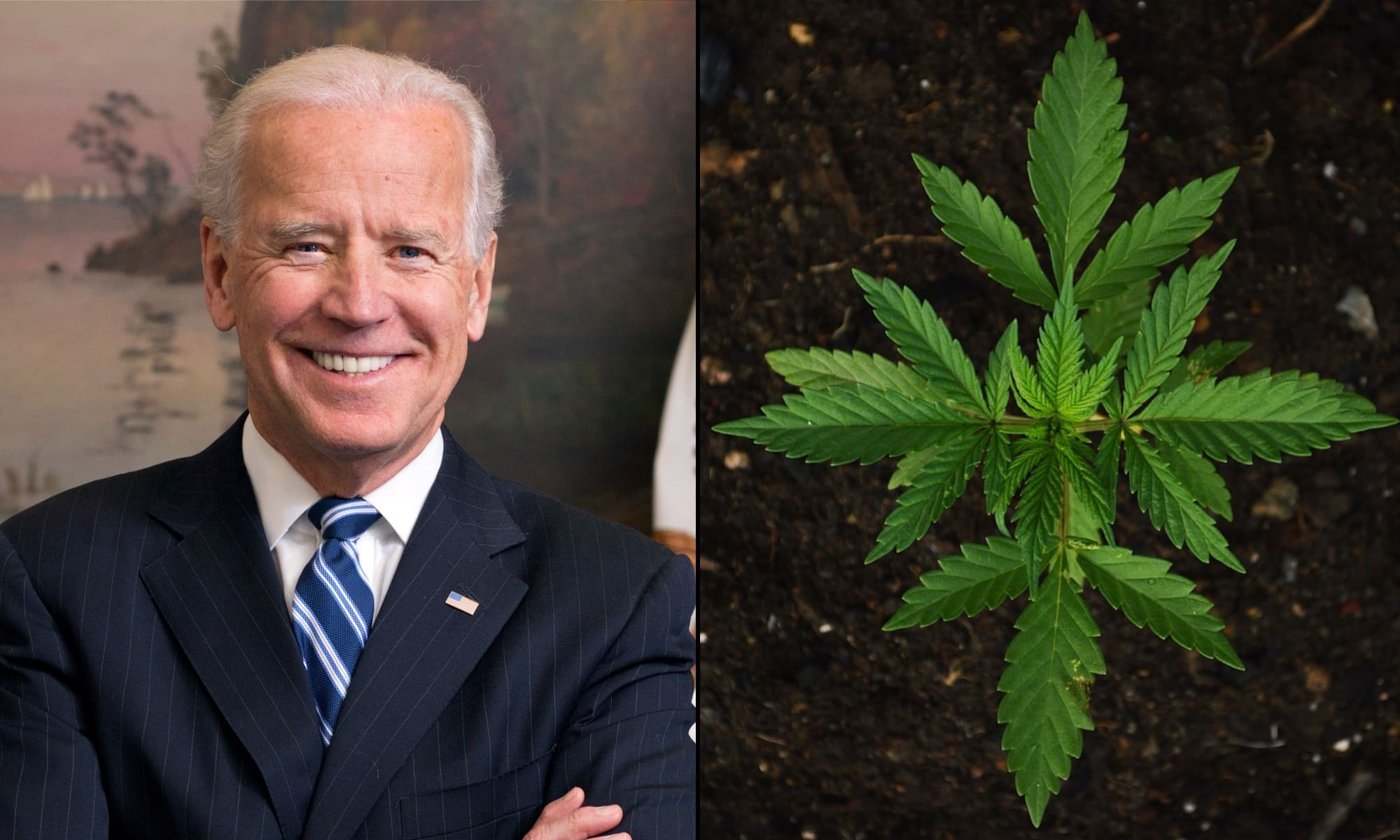Politics
Biden Will Sign Bipartisan Marijuana Research Bill Passed By Congress This Week, White House Says

President Joe Biden intends to sign a bipartisan marijuana research bill that was passed by Congress on Wednesday, a White House spokesperson confirmed to Marijuana Moment on Friday.
The Senate approved the legislation under unanimous consent this week, two months after it cleared the House. It represents the first piece of cannabis reform legislation in U.S. history to be transmitted to the president.
As Bloomberg first reported, Biden will sign the legislation, which would give the U.S. attorney general 60 days to either approve a given application or request supplemental information from the marijuana research applicant. It would also create a more efficient pathway for researchers who request larger quantities of cannabis.
Once the bill officially reaches Biden’s desk, he will have 10 days (excluding Sundays) to sign or veto it, otherwise it would take effect without his signature.
“Yes he’ll sign it,” a White House spokesperson told Marijuana Moment via email.
The president remains opposed to federal cannabis legalization, but he campaigned on a number of more modest marijuana reforms, including promoting research, decriminalization and rescheduling cannabis under the Controlled Substances Act (CSA).
Biden also issued a mass pardon for Americans who’ve committed federal marijuana possession cases last month and directed an administrative review into cannabis scheduling. The White House recently listed those actions among the “top accomplishments” for the president.
Reps. Earl Blumenauer (D-OR) and Andy Harris (R-MD) sponsored the House version of the research legislation, which is substantively identical to a Senate bill from Sens. Dianne Feinstein (D-CA), Brian Schatz (D-HI) and Chuck Grassley (R-IA) that previously cleared that chamber.
Blumenauer and Harris previously championed a separate cannabis research bill that advanced through their chamber in April. Unlike that legislation, however, the newly approved bill notably does not include a provision that scientists had welcomed that would have allowed researchers to access cannabis from state-legal dispensaries to study.
The research legislation that is heading to Biden would encourage the Food and Drug Administration (FDA) to develop cannabis-derived medicines. One way it proposes doing so is by allowing accredited medical and osteopathic schools, practitioners, research institutions, and manufacturers with a Schedule I registration to cultivate their own cannabis for research purposes.
The Drug Enforcement Administration (DEA) would get a mandate to approve applications to be manufacturers of marijuana-derived, FDA-approved drugs under the bill. Manufacturers would also be allowed to import cannabis materials to facilitate research into the plant’s therapeutic potential.
Another section would require the Department of Health and Human Services (HHS) to look at the health benefits and risks of marijuana as well as policies that are inhibiting research into cannabis that’s grown in legal states and provide recommendations on overcoming those barriers.
The bill further states that it “shall not be a violation of the Controlled Substances Act (CSA) for a State-licensed physician to discuss” the risk and benefits of marijuana and cannabis-derived products with patients.
A Congressional Budget Office (CBO) analysis published in July found that the proposal would reduce direct spending by less than $500,000 and would have a “negligible net change in the deficit.”
There are only a few changes in this new bill compared to the original version the Senate passed earlier this year.
For example, the text now says that researchers don’t need to notify or receive a review from DEA if change study protocols, as long as they already have a Schedule I registration. The previous language said broadly that researchers wouldn’t need to reapply for approval. Also, the new version makes more explicit references to cannabis in the text, rather than “drug” generally.
Another revision deals with a section that mandates the attorney general to conduct an annual review of the supply of cannabis that’s available for research purposes. The new bill says DOJ must carry out that review in consultation with HHS, and says that the latter department would need to submit a report to Congress if it determines that the supply is inadequate.
Finally, a section of the original bill concerning the importation of CBD for research purposes was removed from the new measure.
—
Marijuana Moment is tracking more than 1,500 cannabis, psychedelics and drug policy bills in state legislatures and Congress this year. Patreon supporters pledging at least $25/month get access to our interactive maps, charts and hearing calendar so they don’t miss any developments.
![]()
Learn more about our marijuana bill tracker and become a supporter on Patreon to get access.
—
Both the House and Senate passed earlier versions of their separate but similar cannabis research bills in late 2020, but nothing ended up getting to then-President Donald Trump’s desk by the end of the last Congress.
Congressional researchers separately released a report in March that details the challenges posed by ongoing federal prohibition and the options that lawmakers have available to address them.
DEA has taken steps in recent years to approve new cultivators of marijuana to be used in studies, and the National Institute on Drug Abuse (NIDA) recently published a solicitation for applications from those authorized growers as it looks for new contractors to supply the agency with cannabis for research purposes.
Meanwhile, large-scale infrastructure legislation that was signed by Biden last year contains provisions aimed at allowing researchers to study the actual marijuana that consumers are purchasing from state-legal businesses instead of having to use only government-grown cannabis.
Sen. John Hickenlooper (D-CO) sought an update this week on the status of a federal report into research barriers that are inhibiting the development of a standardized test for marijuana impairment on the roads, as required under that infrastructure legislation.
NIDA Director Nora Volkow told Marijuana Moment last year that scientists have been unnecessarily limited in the source of cannabis they’re permitted to study—and it makes sense to enact a policy change that expands their access to products available in state-legal markets.
Also, on Tuesday, congressional lawmakers held a hearing to discuss federal marijuana legalization and state cannabis developments, hearing testimony from a panel of broadly pro-reform advocates.
The chairman of the subcommittee that held that hearing also said on Tuesday that he will soon be introducing a bill aimed at protecting federal workers from being denied security clearances over marijuana.
Sen. Jacky Rosen (D-NV) filed a bill on Thursday that would allow state-legal marijuana businesses to access certain federal Small Business Administration (SBA) loans and services that are available to companies in any other industry.
Meanwhile, former President Donald Trump announced his candidacy for the 2024 president election on Tuesday.
In a speech announcing his candidacy, Trump signaled that drug policy will be a focal point of his campaign—but not by advocating for reform. He talked about waging “war on the cartels” and working with Congress to pass legislation to impose the death penalty on “drug dealers” who are “responsible for death, carnage and crime.”
Congressional Researchers Lay Out Six Key Limitations Of Biden’s Marijuana Pardons
















